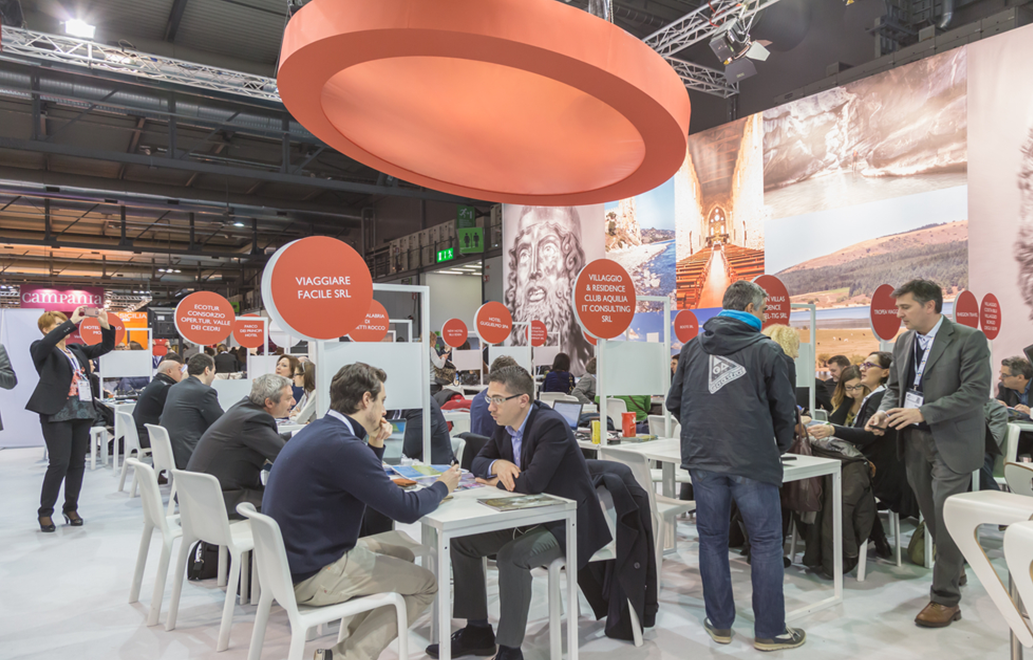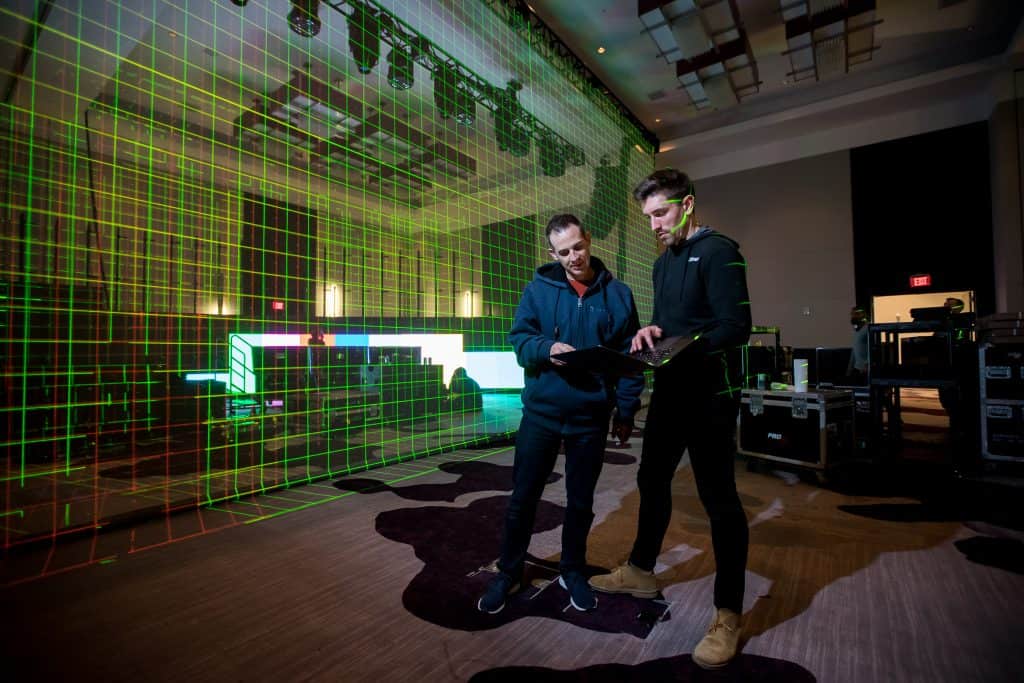Recognizing Event Production: Why It Is Necessary for Successful Celebrations
Event production plays a crucial role fit successful celebrations. It involves cautious planning, control, and implementation to assure every detail aligns with the event's vision. This process not just enhances participant experiences yet also facilitates significant links among individuals. Recognizing the ins and outs of event production can substantially influence the total result. What are the key components that add to a successful event, and exactly how can they be efficiently taken care of?
The Role of Event Production in Producing Unforgettable Experiences
Numerous aspects contribute to the success of an event, event production plays an essential duty in crafting remarkable experiences. This diverse process encompasses numerous components, consisting of planning, logistics, and execution. Effective event production assurances that every detail straightens with the total vision, developing a seamless flow that astounds guests. By coordinating timelines, managing sources, and overseeing technological elements, event manufacturers establish a foundation for impactful experiences.Moreover, they curate environments that resonate with the target audience, improving engagement and psychological link. From choosing suitable places to integrating cutting-edge modern technology, the options made during production significantly affect exactly how participants perceive and keep in mind the event. By focusing on top quality and focus to information, event production transforms normal gatherings right into phenomenal minutes, leaving long-term impressions. Ultimately, the competent orchestration of these elements specifies the significance of an event, showcasing the relevance of specialist event production in achieving extraordinary outcomes.
Secret Parts of Successful Event Production
Reliable event production pivots on several vital components that guarantee success. Preparation and sychronisation develop a solid structure, while technical setup requirements resolve logistical requirements. In addition, implementing audience engagement methods enhances the overall experience, making the event remarkable.
Planning and Control
Preparation and sychronisation function as the backbone of successful event production, guaranteeing that every information lines up flawlessly to produce a remarkable experience. Efficient preparation includes developing a clear vision and goals, while coordination involves the precise organization of logistics, schedules, and resources. A distinct timeline is important, guiding all stakeholders with vital turning points and tasks. Interaction plays a pivotal duty, cultivating collaboration among group participants, vendors, and location personnel. Normal conferences and updates aid to address difficulties without delay, guaranteeing that everyone remains straightened with the event goals. Ultimately, a structured method to planning and control not just boosts effectiveness but likewise greatly adds to the overall success and pleasure of the event for participants and coordinators alike.
Technical Configuration Requirements
An effective event counts heavily on its technological configuration demands, which encompass necessary components such as audio-visual devices, lighting, hosting, and connectivity. Audio-visual tools includes microphones, speakers, and projectors, making certain that discussions and performances are supplied plainly. Proper lighting enhances the setting and highlights essential locations, while staging offers the needed system for speakers and performers. Connection, including Wi-Fi and electric access, is important for smooth interaction and innovation assimilation. Each element should be diligently planned and performed, customized to the event's particular needs. Poor technical configurations can lead to disruptions, adversely influencing the overall experience for participants, emphasizing the value of thorough preparation and focus to information in event production.
Audience Involvement Techniques

The Importance of Preparation and Control
Planning and sychronisation are vital to the success of any kind of event production. Efficient timeline management, resource allocation approaches, and team interaction dynamics play important functions in making certain that all elements collaborated perfectly. Without a structured strategy to these elements, events run the risk of facing delays, budget overruns, and miscommunication amongst staff member.
Efficient Timeline Management


While successful event production typically rests on creativity and execution, efficient timeline management remains a necessary element that can not be overlooked. A well-structured timeline works as the foundation of any type of event, making certain that each phase is performed in a timely manner. It permits the coordination of numerous tasks, from location configuration to guest arrivals, while stopping possible bottlenecks. By clearly describing target dates and duties, event coordinators can maintain emphasis and adapt to unpredicted difficulties. Furthermore, a meticulously crafted timeline cultivates communication among employee, advertising responsibility and cooperation. Ultimately, effective timeline monitoring not just enhances operational performance yet additionally adds significantly to the general success and smooth implementation of the event, leaving attendees with a remarkable experience.
Source Allowance Methods
Efficient resource allocation strategies are important for the effective execution of any event. Proper preparation enables event coordinators to identify and distribute resources, such as finances, workers, and products, in a manner that takes full advantage of efficiency. By assessing the details requirements of each element of the event, organizers can prioritize tasks and assign resources as necessary. Sychronisation amongst different divisions guarantees that all components, from satisfying audiovisual requirements, are effectively sustained. This strategic approach not only minimizes waste however likewise improves the total experience for attendees. Furthermore, preparing for possible obstacles and having backup plans in position enables smoother procedures. Ultimately, effective source appropriation contributes considerably to achieving event goals and guaranteeing a remarkable celebration.
Team Communication Dynamics
Just how can smooth interaction amongst team members transform the event production process? Reliable interaction is important for collaborating tasks, sharing updates, and dealing with difficulties in real-time. When group participants take part in open discussion, they can promptly determine possible concerns and establish solutions collaboratively, lessening delays and misconceptions. This vibrant fosters a cohesive setting where everyone comprehends their roles and obligations, causing a much more synchronized initiative. In addition, routine check-ins and feedback loops improve responsibility and assurance placement with the event's purposes. By focusing on interaction approaches, teams can simplify workflows, bolster morale, and eventually company website boost the overall quality of the event. Effective gatherings rest on the capability to communicate effectively, making it a necessary element of event production.
Enhancing Participant Involvement Through Innovative Layout
Imaginative layout plays an important role in enhancing guest engagement at events, as it cultivates an immersive setting that astounds participants' focus. By incorporating ingenious visuals, interactive aspects, and thematic style, event coordinators can produce remarkable experiences that resonate with attendees. Thoughtful design designs advertise motion and exploration, encouraging guests to connect with displays and each other.Incorporating technology, such as increased truth or live ballot, additional enriches the experience, enabling real-time feedback and communication. Additionally, sensory aspects like illumination, noise, and fragrance can evoke emotions and produce a more appealing atmosphere.The usage of storytelling via design aids convey the event's function and message, making it a lot more relatable for guests. Ultimately, imaginative layout not just enhances engagement yet also strengthens links among participants, leaving a long lasting impression that extends past the event itself. This critical technique to layout is important for effective celebrations.
Handling Logistics for a Smooth Implementation
While the excitement of an occasion can draw attendees in, managing logistics is essential to secure a seamless implementation. This involves diligently collaborating different components, from Click Here place selection and layout to wedding catering and transportation. Reliable logistics monitoring assures that all components straighten, permitting for a smooth flow from enrollment to the final thought of the event.Additionally, a clear interaction strategy among all stakeholders is essential. This includes team, suppliers, and volunteers, who must be informed of their functions and duties. Expecting potential challenges, such as equipment failing or unforeseen weather condition conditions, can even more boost the event's success.Creating a detailed timeline helps keep the team on the right track and permits prompt changes. Ultimately, well-managed logistics not just facilitate an enjoyable experience for attendees yet also reflect the professionalism and trust and integrity of the coordinators, adding to the overall success of the event.

The Influence of Technology on Event Production
What role does innovation play in shaping modern event production? Technology has become a cornerstone of efficient event production, boosting both planning and implementation procedures. From innovative enrollment systems to interactive applications, technology enhances guest monitoring and enhances involvement. Virtual event systems permit organizers to reach larger target markets, breaking geographical barriers and helping with hybrid celebrations that incorporate in-person and online experiences.Additionally, audiovisual innovations, such as high-def displays and stereos, boost the quality of discussions and efficiencies, ensuring a remarkable experience for participants - event production charlotte. Social media integration allows real-time comments and interaction, fostering community interaction in the past, during, and after the event. Information analytics devices assist coordinators in checking participant actions and choices, enabling customized experiences that resonate with varied target markets. On the whole, the integration of modern technology in event production not only enhances functional effectiveness however also enriches attendee experiences, eventually adding to the success of the event
Examining Success: Gauging the End Results of Your Event
Success in event production rests on reliable evaluation, which includes determining a selection of end results to analyze the overall impact of an event. To accomplish this, coordinators can utilize both qualitative and quantitative metrics. Measurable measures may include presence numbers, ticket sales, and revenue produced, while qualitative assessments might entail guest satisfaction surveys and comments forms.Additionally, examining social media involvement and media insurance coverage can provide insights right into the event's reach and brand name effect. Comparing these metrics against predefined objectives aids figure out if the goals were met.Furthermore, post-event debriefs with the planning team can reveal lessons found out and areas for improvement. By methodically examining these end results, event producers can improve future gatherings, ensuring constant growth and success. Inevitably, an extensive analysis not only highlights achievements but additionally view it now informs strategic decisions for subsequent events, cultivating a society of excellence in event production.
Regularly Asked Questions
What Qualifications Should an Event Producer Have?
Event producers ought to have strong business abilities, creativity, and effective interaction abilities. A background in task management, budgeting, and arrangement is necessary. Appropriate qualifications and experience in diverse event kinds additionally improve their certifications.
How Can I Reduce Event Production Prices Properly?
To properly lower event production expenses, one can streamline supplier selection, bargain agreements, make use of internal sources, prioritize crucial elements, execute innovation for effectiveness, and explore sponsorship possibilities to counter expenses without endangering high quality.
What Are the Typical Difficulties in Event Production?
Typical challenges in event production consist of budget restraints, logistical sychronisation, supplier administration, time limitations, guest interaction, technical troubles, and unpredicted circumstances - event production charlotte. Each element can significantly affect the overall success and smooth implementation of the event
Exactly how Do I Pick the Right Venue for My Event?
Selecting the right venue entails taking into consideration aspects such as place, capability, facilities, and budget. Additionally, examining access and atmosphere guarantees the chosen space straightens with the event's goals and improves the total guest experience.
What Is the Typical Timeline for Preparation an Event?
The regular timeline for intending an occasion varies, however typically includes stages such as idea growth, venue selection, vendor sychronisation, promotion, and final preparations, typically extending several months to ensure an effective execution.